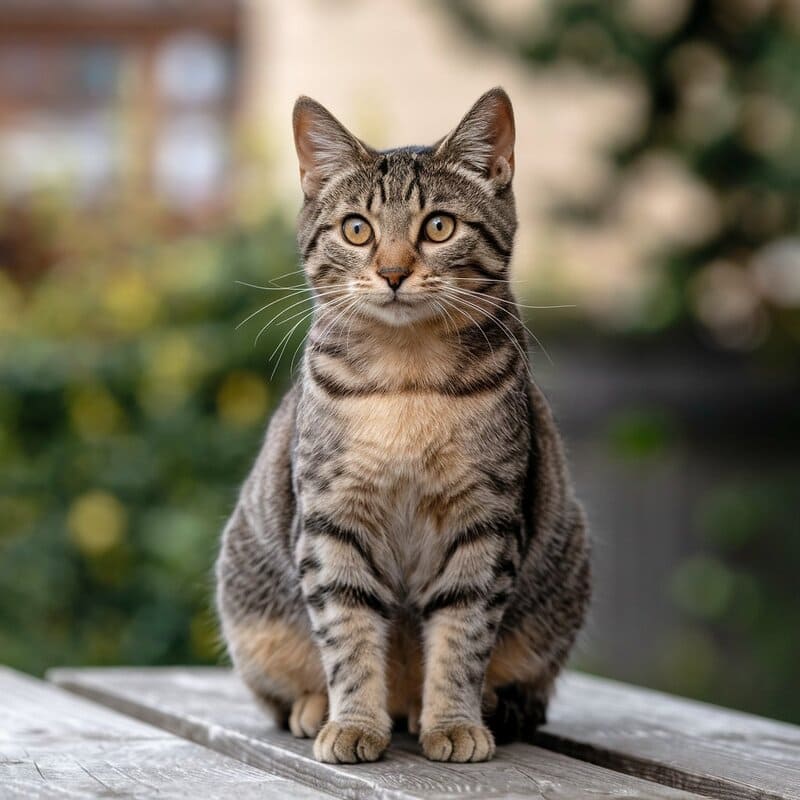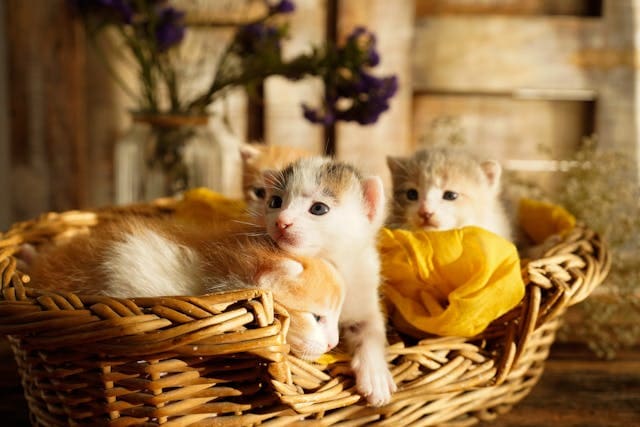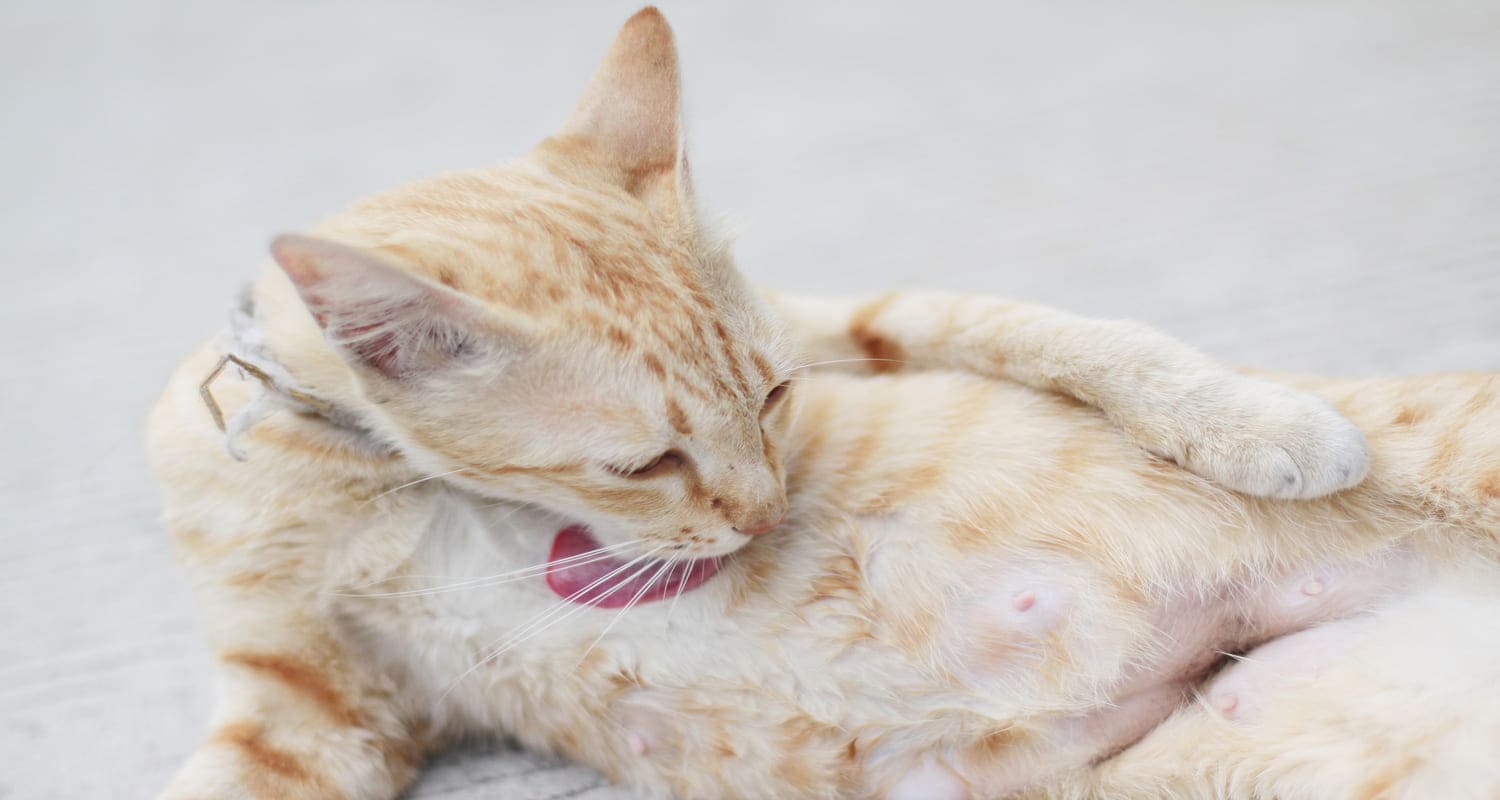Cats are fascinating creatures, and if you’re a cat owner or considering becoming one, understanding their reproductive cycle is essential. Feline pregnancy, also known as the “gestation period,” is a relatively short but crucial stage in a cat’s life. How long are cats pregnant? The quick answer is about 63 to 65 days, but there’s more to it than just the number of days. In this article, we’ll delve deep into the details of feline pregnancy, breaking down the stages, signs, and care tips for expecting queens (female cats).
Outline of the Article:
- Introduction to Feline Pregnancy
- How Long Are Cats Pregnant?
- Overview of Cat Pregnancy Duration
- The Feline Reproductive Cycle
- Heat Cycle in Cats
- Fertilization and Conception
- Signs That Your Cat is Pregnant
- Early Pregnancy Symptoms in Cats
- Mid to Late Pregnancy Symptoms
- Stages of Cat Pregnancy
- First Stage (Weeks 1-3)
- Second Stage (Weeks 4-6)
- Third Stage (Weeks 7-9)
- How to Confirm a Cat’s Pregnancy
- Veterinary Diagnosis Methods
- Home Indicators of Pregnancy
- Caring for a Pregnant Cat
- Nutrition and Dietary Needs
- Exercise and Environment Considerations
- Potential Pregnancy Complications
- Common Issues During Cat Pregnancy
- Signs of Trouble and When to Call the Vet
- How Cats Give Birth
- The Birthing Process (Queening)
- Stages of Labor in Cats
- Postpartum Care for Cats
- Immediate Care After Birth
- Monitoring Kittens and Mother
- Can Cats Get Pregnant Again After Giving Birth?
- Feline Fertility Post-Birth
- Preventing Unwanted Pregnancies in Cats
- Importance of Spaying and Neutering
- Frequently Asked Questions About Cat Pregnancy
- Conclusion
- FAQs
How Long Are Cats Pregnant? Understanding the Feline Timeline
Feline pregnancy is a natural and relatively short process, but it’s packed with important milestones that every cat owner should be aware of. Cats, like many animals, go through a predictable series of reproductive stages that lead up to the birth of their kittens. So, how long are cats pregnant? Typically, the pregnancy lasts 63 to 65 days, though some pregnancies may last slightly shorter or longer, ranging from 58 to 70 days depending on the cat.

The Feline Reproductive Cycle
Before a cat becomes pregnant, she goes through a heat cycle, also known as “estrus.” This is the period during which she’s fertile and can mate. Cats are “polyestrous,” meaning they go into heat multiple times a year, unlike some animals that have only one breeding season.
Heat Cycle in Cats
A cat’s heat cycle can begin as early as five months of age. During this time, the cat may become more affectionate, vocal, and restless. Heat cycles last about a week, and if mating occurs during this time, fertilization and conception follow.
Fertilization and Conception
Once a cat mates, sperm meets the egg, resulting in fertilization. The fertilized egg implants in the uterus, and pregnancy begins. This marks the start of a 9-week gestation period that will culminate in the birth of kittens.
Signs That Your Cat is Pregnant
Recognizing the signs of pregnancy in cats is essential to ensure they receive the right care.
Early Pregnancy Symptoms in Cats
- Behavioral Changes: In the early stages, cats might display subtle behavioral shifts. They may become more affectionate or start seeking out secluded spots.
- Decreased Heat Cycle Signs: If your cat was previously in heat and those behaviors stop suddenly, it’s often an early sign of pregnancy.
Mid to Late Pregnancy Symptoms
- Physical Changes: By week three or four, you may notice weight gain, an increase in appetite, and enlargement of the nipples, which is known as “pinking up.”
- Nesting Behavior: As the due date approaches, your cat will start seeking out quiet, secure places to give birth.
Stages of Cat Pregnancy
Cat pregnancy can be divided into three main stages, with each phase bringing about different changes in the cat’s body.
First Stage (Weeks 1-3)
In the first few weeks, there are few noticeable signs. Internally, however, the fertilized eggs are implanting, and the embryos are beginning to develop.
Second Stage (Weeks 4-6)
During the mid-point of pregnancy, your cat’s belly will start to round out as the kittens grow. You’ll also notice the appetite increase as she begins eating more to nourish herself and her developing kittens.
Third Stage (Weeks 7-9)
In the final stage, you’ll see the most significant physical changes. Your cat’s belly will become quite large, and she may start to groom herself more frequently and prepare a nesting area.
How to Confirm a Cat’s Pregnancy
If you suspect your cat is pregnant, confirming the pregnancy is crucial to provide proper care.
Veterinary Diagnosis Methods
- Ultrasound: A veterinarian can perform an ultrasound as early as 2-3 weeks into the pregnancy to confirm the presence of kittens.
- X-rays: After about 6 weeks, X-rays can show the number of kittens in the womb.
Home Indicators of Pregnancy
While veterinary confirmation is always best, some experienced cat owners can detect pregnancy by noting physical and behavioral signs. However, this is not foolproof.
Caring for a Pregnant Cat
Proper care during pregnancy is vital for the health of both the mother and her kittens.
Nutrition and Dietary Needs
A pregnant cat’s nutritional requirements increase significantly. Switching to a high-quality, nutrient-dense cat food, such as kitten food, provides the necessary calories and nutrients for both the mother and the developing kittens.
Exercise and Environment Considerations
While your cat can stay active during pregnancy, avoid vigorous activities. Ensure she has a calm, comfortable environment, free from stress, where she can prepare for labor.
Potential Pregnancy Complications
While most cat pregnancies proceed smoothly, complications can occur. Knowing what to watch for can help ensure a safe pregnancy and delivery.
Common Issues During Cat Pregnancy
- Miscarriage: Though rare, it is possible for a cat to miscarry. Signs include bleeding or discharge.
- Eclampsia: This is a condition related to calcium deficiency that can occur before or after birth, leading to muscle tremors and weakness.
Signs of Trouble and When to Call the Vet
Any signs of distress such as lethargy, excessive bleeding, or abnormal behavior warrant a vet visit immediately.
How Cats Give Birth
The actual birthing process is called “queening.” It’s typically a natural and quick process, but some cats may require assistance.
The Birthing Process (Queening)
Cats will often retreat to a quiet spot to give birth. The process can take several hours as the cat delivers each kitten, with rest periods in between.
Stages of Labor in Cats
Labor is broken into three stages:
- Preparation: The cervix dilates, and the cat begins to contract.
- Delivery of Kittens: The kittens are born, usually head first.
- Delivery of the Placenta: After each kitten, the placenta follows.
Postpartum Care for Cats
After the birth, both the mother and her kittens need careful monitoring.

Immediate Care After Birth
Make sure the mother is comfortable and has access to food and water. Keep the nesting area clean and free from disturbances.
Monitoring Kittens and Mother
Ensure that each kitten is nursing and that the mother is attentive to them. If she appears disinterested or weak, contact a vet immediately.
Can Cats Get Pregnant Again After Giving Birth?
Yes, cats can go into heat as early as two weeks after giving birth, which is why spaying is recommended to prevent unwanted pregnancies.
Preventing Unwanted Pregnancies in Cats
The best way to avoid multiple pregnancies is to spay your cat. This simple procedure not only prevents pregnancies but can also contribute to a healthier, longer life.
Conclusion
Understanding the feline pregnancy cycle is essential for cat owners who want to provide the best care for their pets. By knowing how long cats are pregnant and recognizing the signs of pregnancy, you can ensure your cat has a smooth, healthy pregnancy and delivery.
FAQs
- How can I tell if my cat is pregnant? Early signs include weight gain, appetite increase, and behavioral changes like increased affection.
- How many kittens do cats usually have? Cats typically give birth to 3-5 kittens per litter.
- Do cats need special food when pregnant? Yes, pregnant cats should be switched to kitten food for its higher nutrient content.
- How soon can a cat get pregnant again after giving birth? Cats can go into heat as early as two weeks after giving birth.
- When should I take my pregnant cat to the vet? Regular vet visits are essential, especially if you notice any signs of distress like bleeding or lethargy.



